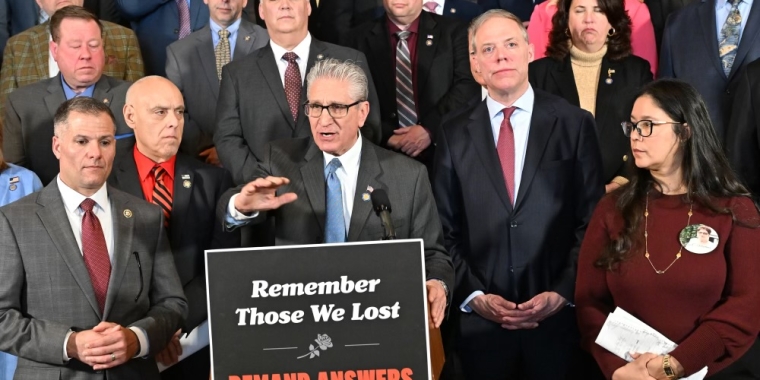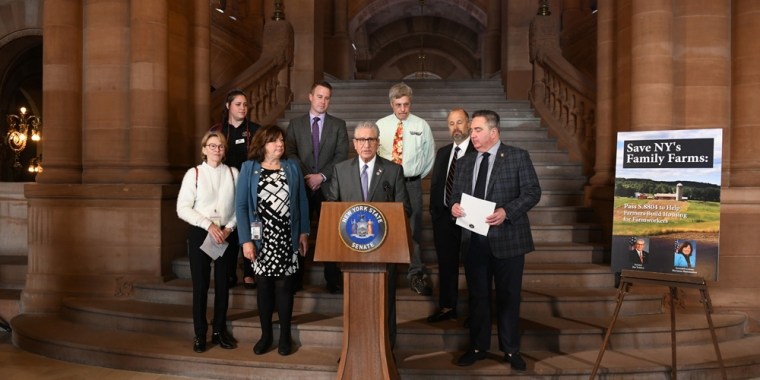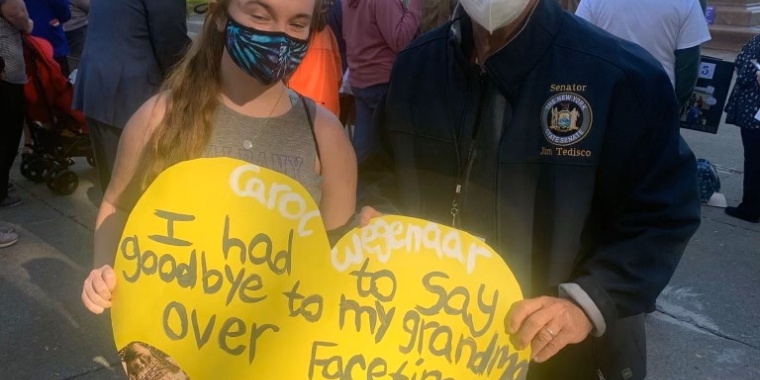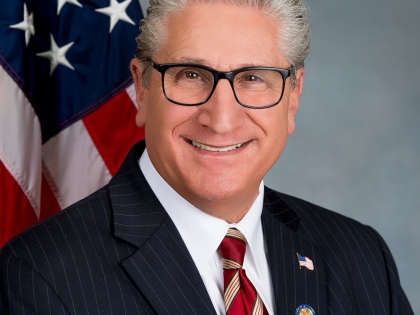
Tedisco, Walsh and Shen and Burnt Hills School Officials: Repeal Electric School Bus Mandate!
February 12, 2024
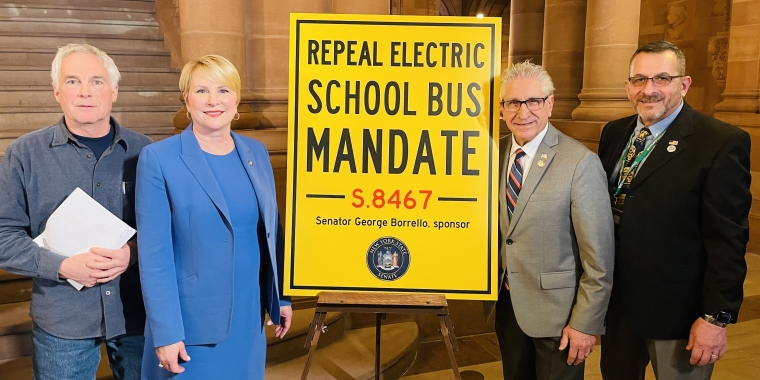
Pictured L-R: Robert Killeen, Burnt Hills-Ballston Lake School District Bus Mechanic, Assemblywoman Mary Beth Walsh, Senator Jim Tedisco and Al Karam, Director of Pupil Transportation for the Shenendehowa Central School District
Senator Tedisco, Assemblywoman Walsh and school transportation experts call for new legislation to replace state’s electric school bus mandate with pilot program to evaluate performance in urban, suburban and rural school districts
Senator Jim Tedisco (R,C-Ballston Lake) and Assemblywoman Mary Beth Walsh (R,C-Ballston) today joined with local school transportation experts and members of their conferences to call on the Governor and Legislature to rescind the electric school bus mandate and replace it with a pilot program to evaluate electric bus performance in New York State’s urban, suburban and rural areas.
The electric school bus mandate, enacted in 2022, requires new school buses purchased to be zero emission by 2027 and all school buses in operation to be electric by 2035. There is no provision made for the geographical disparities, diverse weather conditions or unique travel demands of the state’s school districts. In addition, this is another mandate from Albany that burdens cash-strapped school districts and taxpayers.
“The goal of having several clean energy options is a good one, but it’s got to be done with common sense and in a realistic way that’s reasonable and affordable for taxpayers, our local governments, and school districts -- and not add to the high tax burden faced by New Yorkers. We’re offering a reasonable proposal to rescind the electric school bus mandate that will cost school districts in New York State billions of dollars, and replace it with a state-funded pilot program that enables school districts to test and evaluate how these electric buses perform,” said Senator Jim Tedisco, Ranking Member on the Senate Education Committee.
“As schools face existing challenges, mandating the purchase of expensive EV buses only exacerbates the financial strain. The EV bus goal is unrealistic and impractical for most school districts across the state. We must heed warnings from schools of their inability to meet this requirement. I support legislation that would push this mandate until 2045 or until all state agencies convert their fleets. While the transition to EV may happen eventually, our schools should not be the test case for such a costly objective, and decisions of this magnitude must be made with the best interests of our students in mind,” said Assemblywoman Mary Beth Walsh.
Tedisco and Walsh note that problems associated with electric vehicles that are gaining increasing attention, include:
Inability to operate or charge in frigid temperatures, as a well-publicized incident in Chicago in mid-January underscored. Designed to operate best in 70-degree temperatures, electric vehicles lose up to 40 percent of their traveling range in extreme cold and the time required to charge them is much longer. A pilot program in Vermont found traveling range decreased by 80 percent in some instances;
Poor reliability. School districts engaged in pilot programs and agencies operating municipal buses have reported many electric buses are “gathering dust” in bus garages as a result of numerous mechanical problems and hard to access parts and technical support. A study by Consumer Reports found that electric vehicles have 80 percent more problems than conventional vehicles.
Moreover, the largest obstacle to large-scale conversion is the exorbitant cost. Electric buses cost up to three times as much as conventional buses -- it’s a difference of $130,000 versus $400,000 or more. Additionally, tens of thousands of dollars in electrical infrastructure and distribution line upgrades are required. The cost of the conversion has been conservatively estimated at between $8 billion and $15.25 billion more than the cost of replacing them with new diesel buses. The state allocated just $500 million in the most recent Environmental Bond Act to assist schools with the costs.
